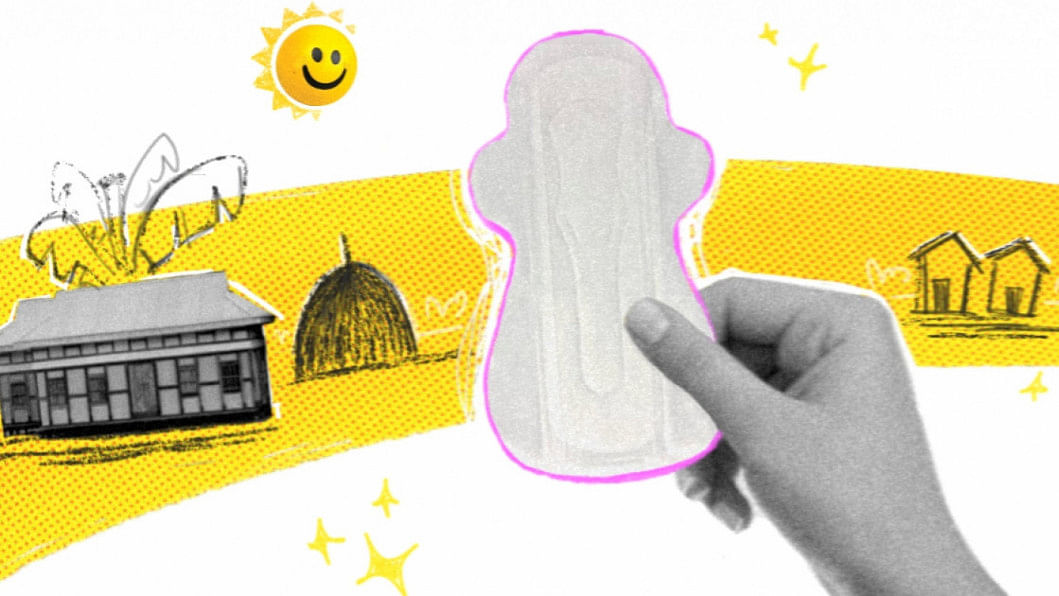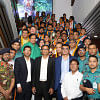Pink tax: The cost of being a woman

As the world dons pink for Breast Cancer Awareness Month in October, it's essential to remember that the fight against breast cancer isn't just about awareness; it's also about equity. Amid the sea of pink ribbons, there's a silent economic burden disproportionately shouldered by women globally and in Bangladesh – the pink tax.
Pink tax often goes unnoticed but holds substantial consequences for women's wallets. It refers to the norm of women being charged more for products and services marketed specifically to them. In Bangladesh, where gender-based discrimination persists in various forms, the pink tax further entrenches economic inequalities.
The issue of gender-based pricing extends beyond everyday products and significantly impacts female hygiene essentials, specifically sanitary pads. The unfortunate reality is that women in Bangladesh often pay more for sanitary pads compared to for other gender-neutral hygiene products. Such price discrimination not only deepens the economic inequality between genders but also exacerbates the financial hardships faced by women, particularly in the context of menstrual hygiene.
Women in Bangladesh frequently shell out more for sanitary pads simply because they are marketed as gender-specific products. This unjust pricing disparity is a significant concern, as it directly affects the accessibility and affordability of sanitary products for women.
Women who are battling breast cancer bear a significant financial burden, especially when it comes to healthcare expenses. The pink tax rears its head once again, artificially inflating the cost of essential medical supplies like mastectomy bras and prosthetics, further straining the resources of these patients.
For women, sanitary pads are not a luxury but a fundamental necessity. The burden of higher prices for these products falls squarely on their shoulders, especially for those already facing economic challenges. This can result in women having to make tough choices between purchasing sanitary pads and meeting other essential needs, further perpetuating gender-based economic disparities.
October being Breast Cancer Awareness Month is a period of unity and action, where communities come together to promote early detection, raise funds for research, and support those facing the challenges of breast cancer. However, the pink tax stealthily infiltrates even these well-intentioned initiatives, undermining their effectiveness.
Consider breast cancer awareness campaigns that often feature merchandise adorned with pink ribbons, symbolising hope and solidarity. Yet, the pink tax lurks here as well, with women unknowingly paying more for these items. This not only diverts funds away from the cause but also perpetuates the cycle of gender-based pricing disparities.
Furthermore, women who are battling breast cancer bear a significant financial burden, especially when it comes to healthcare expenses. The pink tax rears its head once again, artificially inflating the cost of essential medical supplies like mastectomy bras and prosthetics, further straining the resources of these patients.
To address pink tax and its detrimental impact on women in Bangladesh, we must champion meaningful solutions that promote gender equity and financial fairness.
Pricing transparency
We must advocate for greater pricing transparency, compelling businesses to disclose the cost breakdown of gender-specific products and services. Transparency empowers consumers to make informed choices and holds companies accountable for discriminatory pricing.
Legislative action
We can also push for legislative measures that prohibit gender-based pricing disparities. Laws that ensure products and services marketed to both genders are priced equitably are critical in challenging the pink tax.
Consumer education
Launching public awareness campaigns to educate consumers about the pink tax, its implications, and their rights is also crucial. Informed consumers can drive demand for change and support businesses that prioritise fairness.
Support for breast cancer patients
Finally, we must enhance financial support and resources for women battling breast cancer, particularly those grappling with the financial burden of treatment. Financial assistance programmes can help alleviate the economic strain on patients and their families.
As we commemorate Breast Cancer Awareness Month, let us not forget the women in Bangladesh and across the world who face the dual challenges of breast cancer and the pink tax. Economic equality should be a fundamental right, not an elusive goal.
We must carry the spirit of awareness and solidarity beyond October. The pink tax, like breast cancer, affects women year-round. By confronting the pink tax head-on and advocating for changes in policies, pricing, and perceptions, we can ensure that women receive equitable treatment and support, without the burden of discriminatory pricing practices.
Syed Nabil Ahsan is a final year student at North South University.
Views expressed in this article are the author's own.
Follow The Daily Star Opinion on Facebook for the latest opinions, commentaries and analyses by experts and professionals. To contribute your article or letter to The Daily Star Opinion, see our guidelines for submission.

 For all latest news, follow The Daily Star's Google News channel.
For all latest news, follow The Daily Star's Google News channel. 










Comments